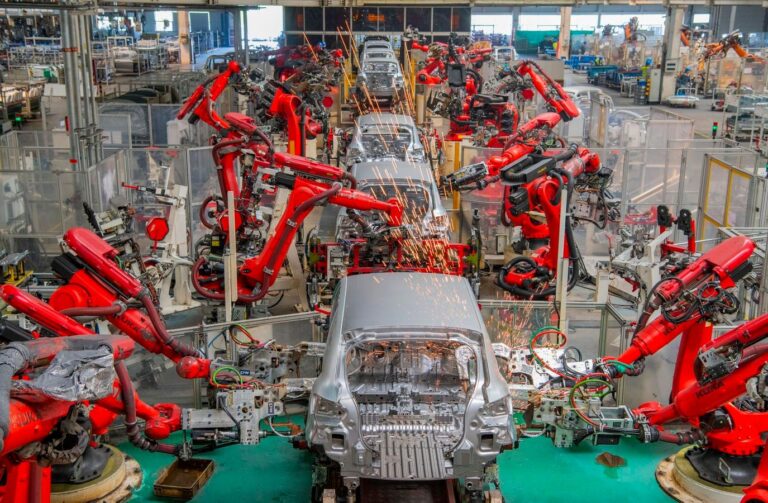In today’s evolving workplace, AI and robotics are already automating tasks in almost every field. … [+]
The rise of artificial intelligence and robots has some fearing that these sophisticated emerging technologies could one day replace human workers.
In today’s evolving work environment, AI and robotics are already automating tasks in almost every sector, including manufacturing, data analysis, customer service, administration, etc. Currently, repetitive and routine tasks are most susceptible to automation.
While AI and robotics will undoubtedly change the nature of work, it is unlikely that all jobs will be eliminated by these technologies. The focus will likely shift to jobs that require human-AI collaboration and uniquely human skills. The future of work is likely to include a combination of paid employment, universal basic income, and a new focus on finding meaning and fulfillment outside traditional work structures.
The Future of Work
Many jobs require creativity, critical thinking, social skills, problem-solving under pressure and the ability to handle unexpected situations – these are areas where AI still has limitations, meaning there will continue to be a need for human skills on the job.
However, many roles are likely to change and will require different skill sets to work effectively with AI tools. The future of work is where humans and AI work together, leveraging each other’s strengths. For example, accountants may use AI for data analysis, but the job will still require human judgment for complex decisions.
New jobs are likely to emerge in areas such as AI development, robot maintenance and data security, as well as jobs with a focus on human interaction and emotional intelligence to fill gaps.
Elon Musk talks about the impact of AI
Elon Musk, co-founder and CEO of Tesla and SpaceX, and owner of X, formerly known as Twitter, believes the impact of AI will be more far-reaching and transformative, calling it “the most disruptive force in history.”
While speaking at the Viva Technology conference in Paris in May, Musk said that AI will eventually make workers obsolete, though he doesn’t see the prediction as necessarily harmful.
According to the tech entrepreneur, highly advanced AI capabilities will eliminate the need for human labour, making traditional jobs redundant, which he says could be a “positive scenario” for the future of work.
Employment will become optional, more like a hobby than a necessity: Musk believes that instead of people having jobs to earn a living, they will simply work out of personal interest and creative fulfillment.
But work gives people a sense of purpose and identity, and the risk of this being lost raises the question: how do humans find meaning in life?
Making people financially obsolete due to AI could have serious mental health implications for some people who derive their self-worth from their careers and productive achievements, but AI could give them the opportunity to volunteer, work on passion projects, or start their own businesses.
For work to be a choice, Musk said we need to live in an “age of abundance” achieved by “universal high income.”
Universal Basic Income
Meanwhile, computer scientist Geoffrey Hinton paints a much darker picture: The so-called “godfather of artificial intelligence” told the BBC that governments should offer a universal basic income to provide a safety net if automation causes widespread job losses.
According to Hinton, the wealthy will benefit from AI and the increased productivity it brings, but those who lose their jobs will suffer, which would be “very bad for society.”
Similarly, former Democratic presidential candidate Andrew Yang has called for giving Americans a UBI to cover the costs of living, arguing that the rise of technology will leave millions of Americans without the skills to get decent jobs.
During a podcast with Yang in 2020, Block’s head and former Twitter CEO Jack Dorsey said that in the near future, AI will be able to write better code than software engineers can today. Dorsey predicted that technology will consume everyone and no one will be safe.
The importance of adaptability and the meaning of work
One of the biggest criticisms of a UBI is that it would be prohibitively costly to provide cash transfers at a level sufficient to have a meaningful impact on poverty and inequality.
Whatever the future holds, the ability to learn new skills and adapt to change will be key. Continuous learning and upskilling are essential to staying relevant in the job market.


